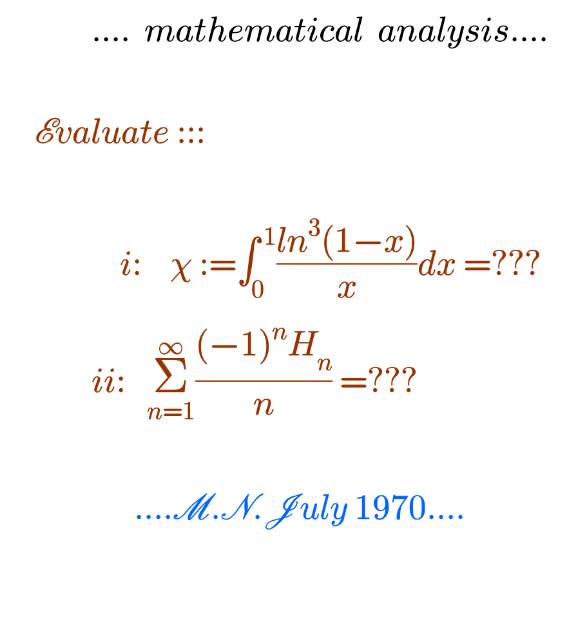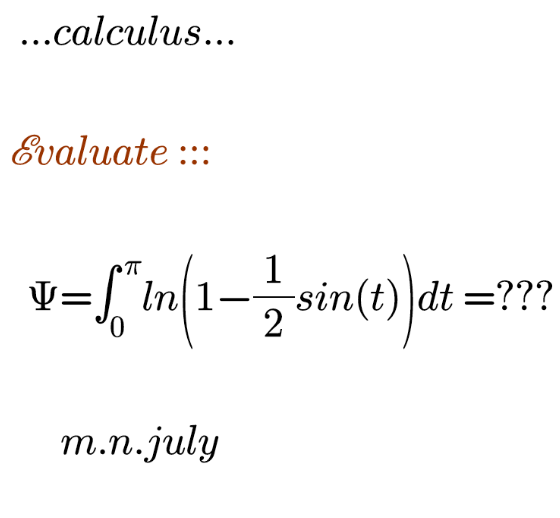
IntegrationQuestion and Answers: Page 147
Question Number 113421 Answers: 0 Comments: 2

Question Number 113418 Answers: 3 Comments: 1
Question Number 113323 Answers: 2 Comments: 0

Question Number 113275 Answers: 2 Comments: 0
Question Number 113218 Answers: 1 Comments: 0

Question Number 113203 Answers: 1 Comments: 0
Question Number 113198 Answers: 1 Comments: 0
Question Number 113159 Answers: 2 Comments: 0
$$\int_{\mathrm{0}} ^{\mathrm{1}} {x}^{\mathrm{2}} {log}\left(\mathrm{1}−{x}\right){dx} \\ $$
Question Number 113111 Answers: 1 Comments: 0
Question Number 113110 Answers: 2 Comments: 2
$$\overset{\mathrm{1}} {\int}_{\mathrm{0}} \sqrt{{x}\left({x}−\mathrm{1}\right){dx}} \\ $$
Question Number 113004 Answers: 2 Comments: 0
Question Number 112997 Answers: 1 Comments: 3
$$\int\frac{\:{tan}\:{x}\:{dx}}{\:\sqrt{{sec}^{\mathrm{3}} \:{x}\:+\:\mathrm{1}}}\:=\:? \\ $$
Question Number 112958 Answers: 0 Comments: 3

Question Number 112854 Answers: 0 Comments: 3
Question Number 112847 Answers: 1 Comments: 0
Question Number 112792 Answers: 0 Comments: 0

Question Number 112797 Answers: 2 Comments: 0
Question Number 112666 Answers: 2 Comments: 0
Question Number 112699 Answers: 3 Comments: 1
Question Number 112613 Answers: 1 Comments: 2
Question Number 112579 Answers: 4 Comments: 0
Question Number 112520 Answers: 0 Comments: 0
$$\int\frac{\sqrt[{\mathrm{3}}]{{cos}\left({x}\right)}}{{cos}\left({x}\right)}{dx} \\ $$
Question Number 112498 Answers: 0 Comments: 0
$$\int\frac{{ln}\left(\mathrm{1}+{x}\right){dx}}{\left(\mathrm{1}+{x}^{\mathrm{2}} \right)} \\ $$
Question Number 112481 Answers: 1 Comments: 0
Question Number 112447 Answers: 0 Comments: 0
Question Number 112446 Answers: 2 Comments: 0
Pg 142 Pg 143 Pg 144 Pg 145 Pg 146 Pg 147 Pg 148 Pg 149 Pg 150 Pg 151
